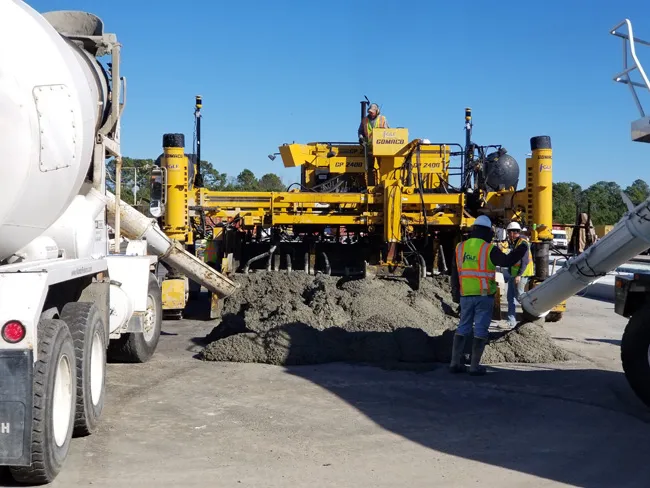CarbonCure’s solution is to introduce recycled CO2 into fresh concrete. And according to the firm, this technology could save up to 700 megatonnes of CO2 emissions/year, going a long way to tackling the serious threat to human habitation being posed by climate change. It is worth noting that cement is the world's second largest industrial source of CO2 according to the
However CarbonCure claims that its technology can deliver significant cost benefits to concrete producers, while making construction more sustainable. It says that injecting CO₂ into concrete improves the compressive strength, enabling a producer to optimise mix designs. This also reduces the quantity of cement needed, further improving the overall environmental footprint and once the concrete cures, the CO2 is said to remain sequestered within the material.
The firm says that its Technology has no upfront capital costs, allowing producers to quickly see a positive return on investment. As a result concrete producers can benefit from improved operations, while offering industry the ability to reduce the carbon footprint of construction projects. The CarbonCure Technology is seamlessly integrated into a plant’s existing batching system and has no impact on daily operations or on cycle time. Aside from improving compressive strength, there is no impact on the concrete’s fresh or hardened properties.
Concrete producers already using this technology buy in the CO2 from other industries. But because the process reduces the quantity of cement required, CarbonCure claims its technology cuts concrete production costs. Thomas Concrete and Ozinga Concrete are two of the major concrete producers in North America using this technology at the moment.
At the moment just 90 concrete plants in North America are using this technology, but CarbonCure believes this solution can deliver a major benefit to the industry worldwide. Nor is the CarbonCure system the only such technology, with at least two similar systems being developed at present.
Sustainable concrete solution from Canadian firm?
A firm in Canada claims it has the answer to questions over the sustainability of concrete as a construction material. One of the key problems is that the cement used in concrete, is responsible for up to 7% of the world's carbon dioxide (CO2) emissions. However Canadian company CarbonCure claims its concrete solution can conquer this catch, allowing concrete construction to become more sustainable.
CarbonCure’s solution is to introduce recycled CO2 into fresh concrete. And according to the firm, this tech
August 9, 2018
Read time: 3 mins
A firm in Canada claims it has the answer to questions over the sustainability of concrete as a construction material. One of the key problems is that the cement used in concrete, is responsible for up to 7% of the world's carbon dioxide (CO2) emissions. However Canadian company CarbonCure claims its concrete solution can conquer this catch, allowing concrete construction to become more sustainable.







